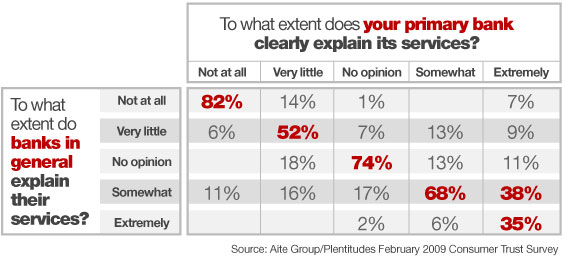“Your” money that is in banks is not your money. The moment you deposit money into your bank account, they immediately become the property of the bank.
From a legal point of view, it seems, you give your money at interest (usually insignificant). However, since the money is no longer yours, the banks apply such strict conditions under which you cannot withdraw them for a certain period, or, all in one day, if the amount is rather high.
The government will know everything about you. Today, banks are obliged to inform the authorities about everything they know about you – including how much money you have, where you come from and how much you got, and where you spend it. The golden age of banking secrecy is over, and it simply does not exist. Of course, if you are a law-abiding citizen, then you can say that you have nothing to hide. But it's not that. It is about basic human rights and the right to privacy. You can't let the government watch you.
Banks are asking too many stupid questions. Most likely, the money you brought to the bank is your earned money, but you still have to explain to the bank where you got it from. And how do you ask a question, like: "Do you have real estate?". Even after such a series of questions, they may refuse to provide you with services.
They can block your account or even steal your money. Laws are not created to protect people, they are created to protect the government from people. And this is precisely the reason why the government can legally withdraw all your money from your bank account, and the bank, of course, will allow it.
For example, bailiffs can now easily get to your cards and seize your funds. Similarly, creditor banks, having on hand a judicial decision against debtors, can find out information about them in another bank and withdraw their funds. This is not to mention the temporary suspension of your account.
Banks make a profit from your money, and you in return – almost nothing. Usually, banks have hundreds of billions of € / $ / £ of customers, and they pay them interest, which is significantly lower than inflation. In fact, people give money to banks for free, and banks get millions in profits from them. Great business, isn't it?
Banks have too much power. Money is power, and we all know that. Giving our money to banks, we give them power over ourselves. Lots of power. So much so that they control our society as a result. This power can be taken away only if people and companies stop using the services of banks.
There is a risk of losing all the money if your bank goes bankrupt. For example, the EU government undertakes to support deposits of up to € 100 thousand in case of bankruptcy of a bank. But not more. If you have more than € 100 thousand, the rest will not be returned to you. And if your bank is not in the EU, then the amount of such support of deposits may be significantly lower or completely absent.
Bank transfers are not competitive. Today, sending money through banks is the slowest option. Slower than them – only postal orders. For example, transferring money abroad through SWIFT will take you 3-4 days. Why? And because they do not work on weekends.
However, with the help of cryptocurrency wallets , funds converted into digital currencies can always be sent instantly. So why use banks?
Banks are no longer needed. The initial idea of banks was very useful: you give your money to a trusted third party, and she pledges to keep it safe for you so that thieves and criminal syndicates such as governments can not steal them from you.
Today, however, banks can only protect you from ordinary thieves. Perhaps now keeping money in a chest in the house with an alarm may be a safer option than banks.
There are better options. Bitcoin and other cryptocurrencies are now the safest way to store and move funds when they do not have to be trusted by banks, governments or any third parties. So why use the worst solutions? Think about it and share this information with friends and relatives, because changing the whole world begins with each of us.
Publication date 02/20/2019
Share this material on social networks and leave your opinion in the comments below.

